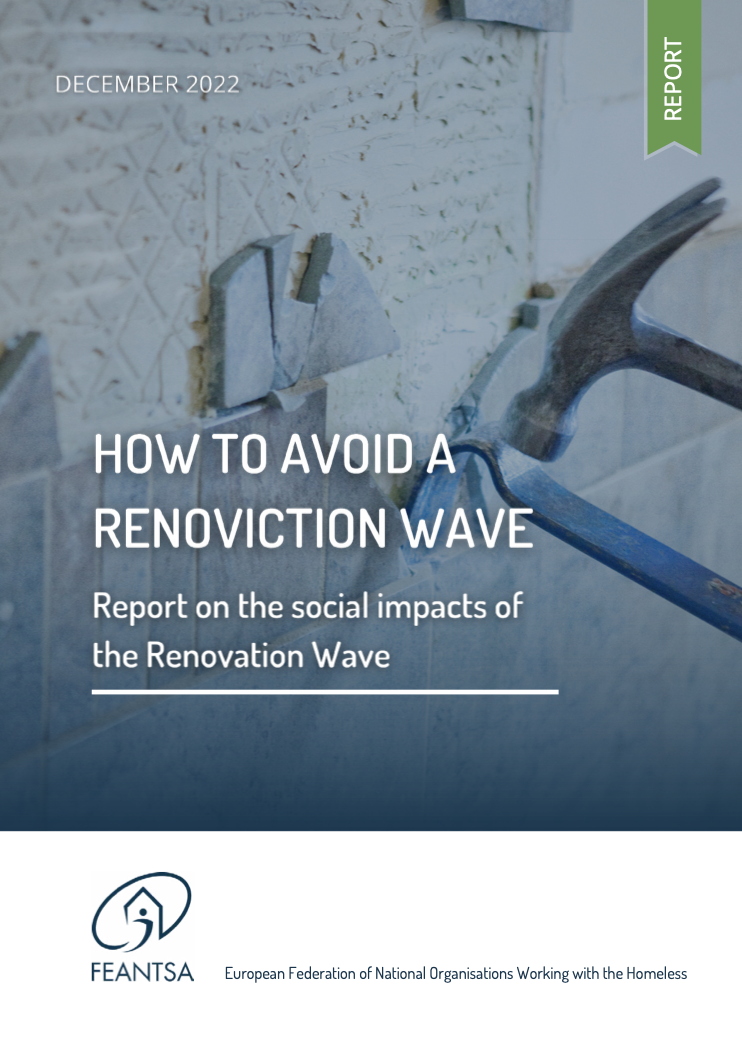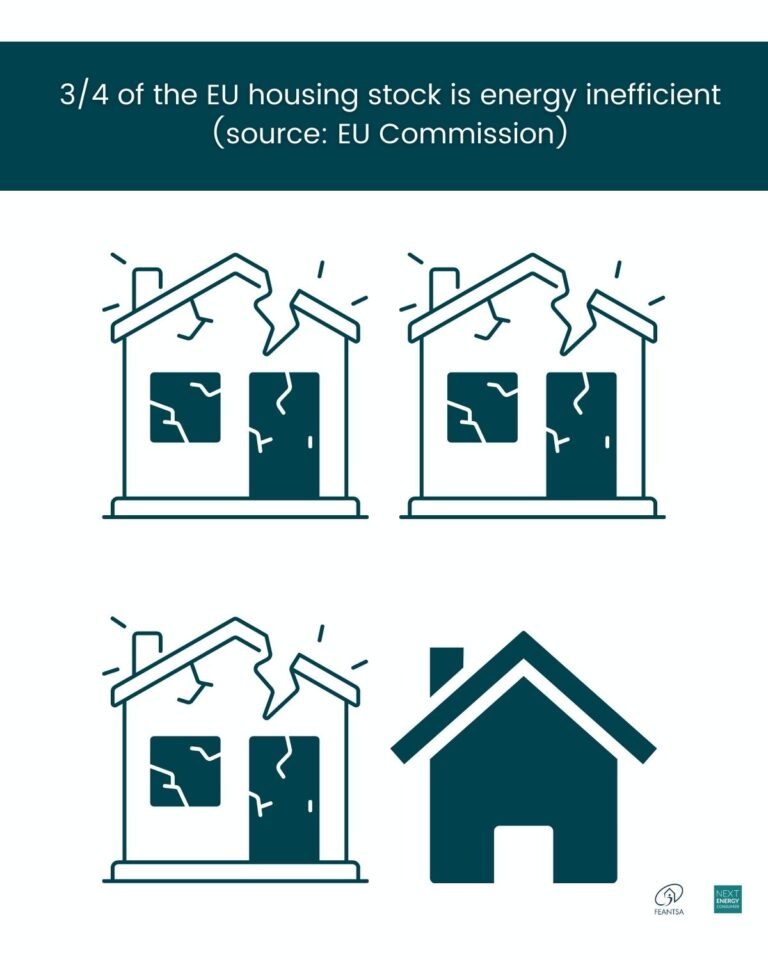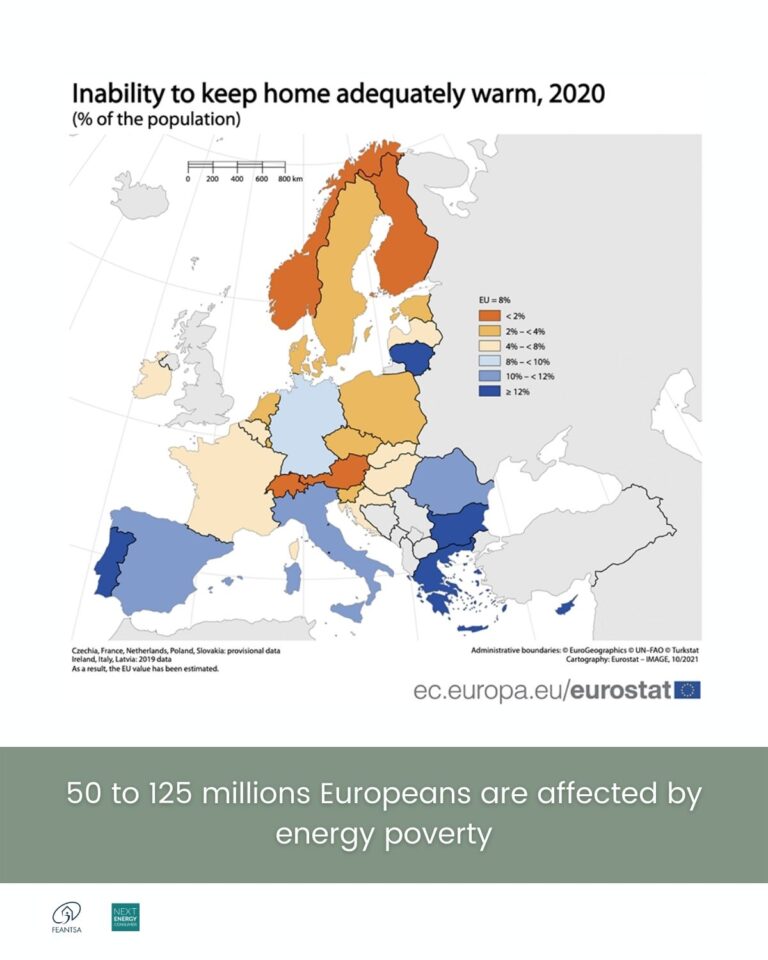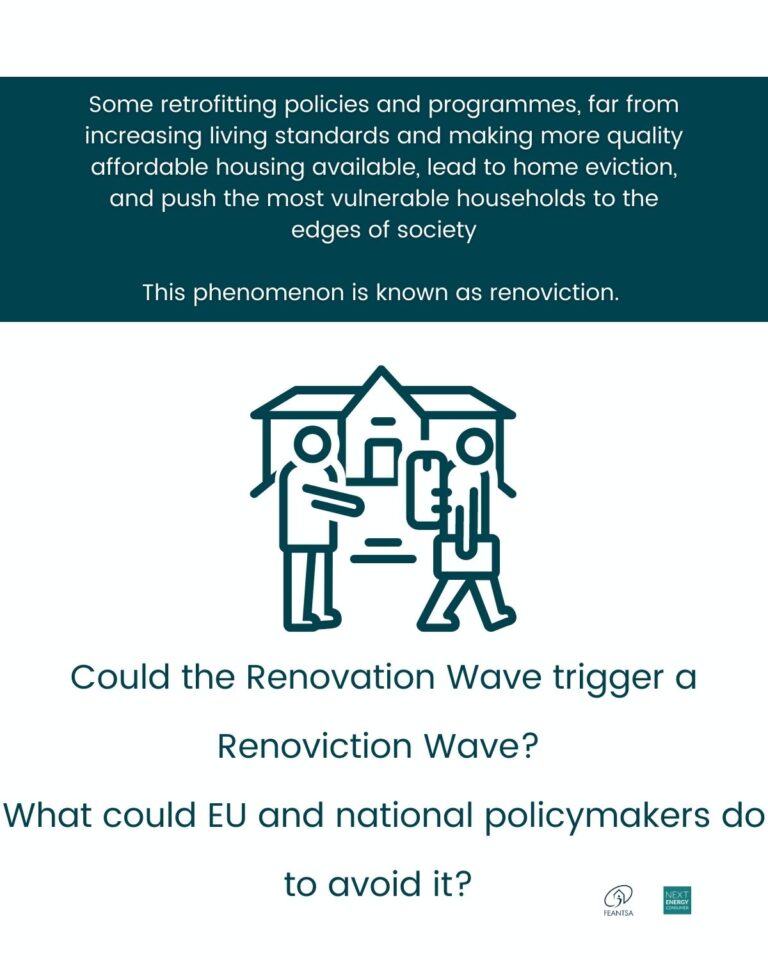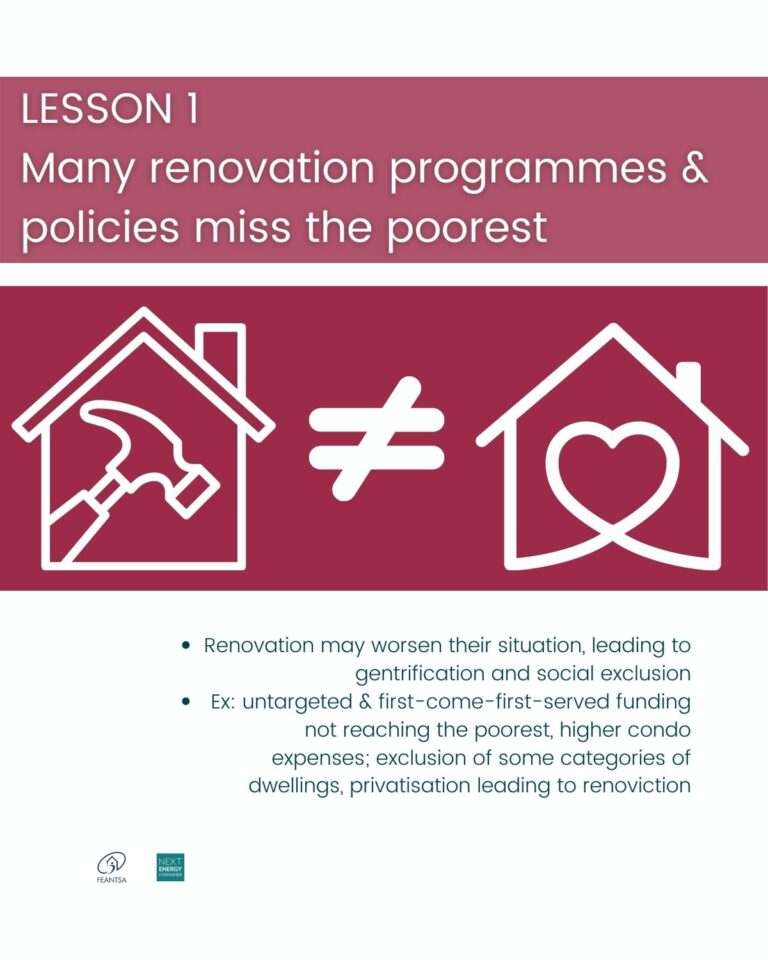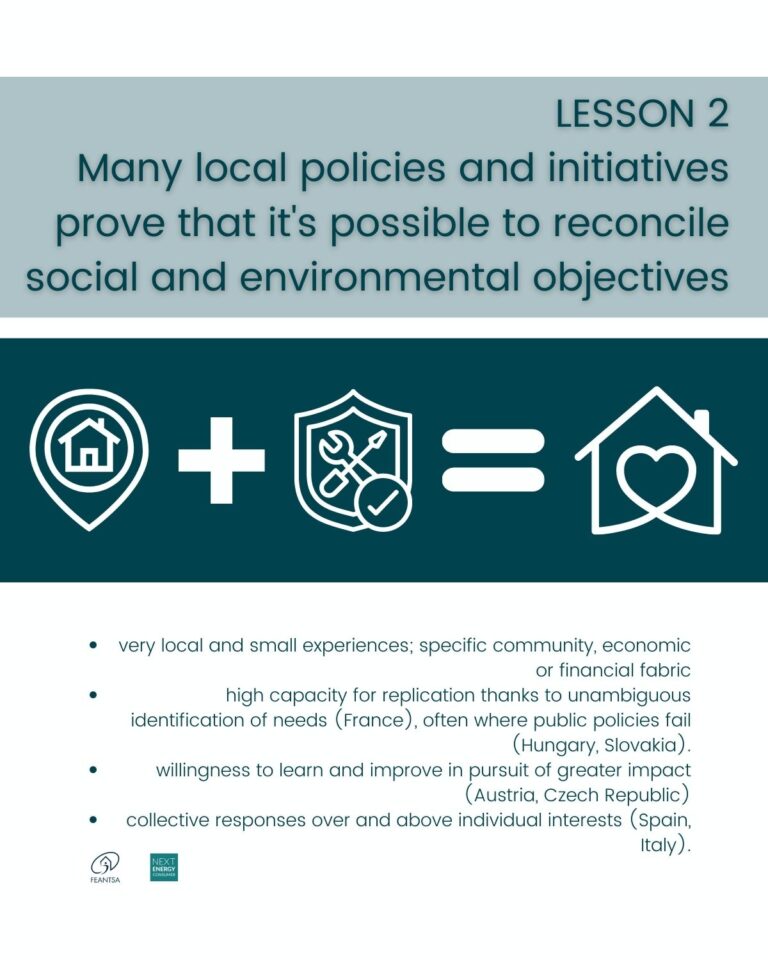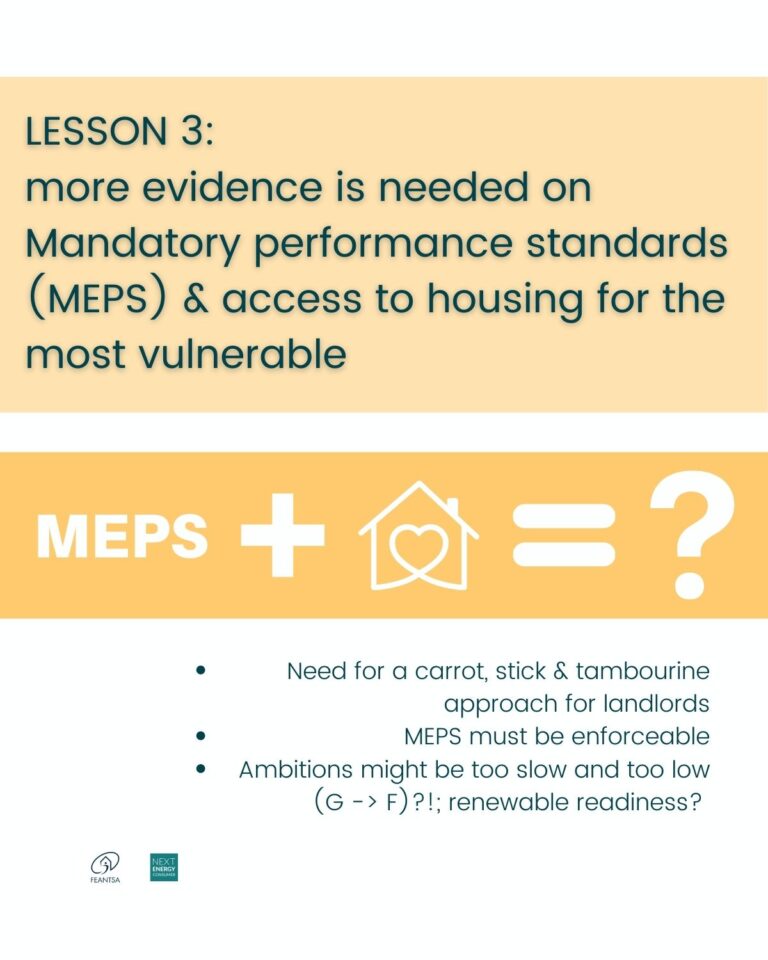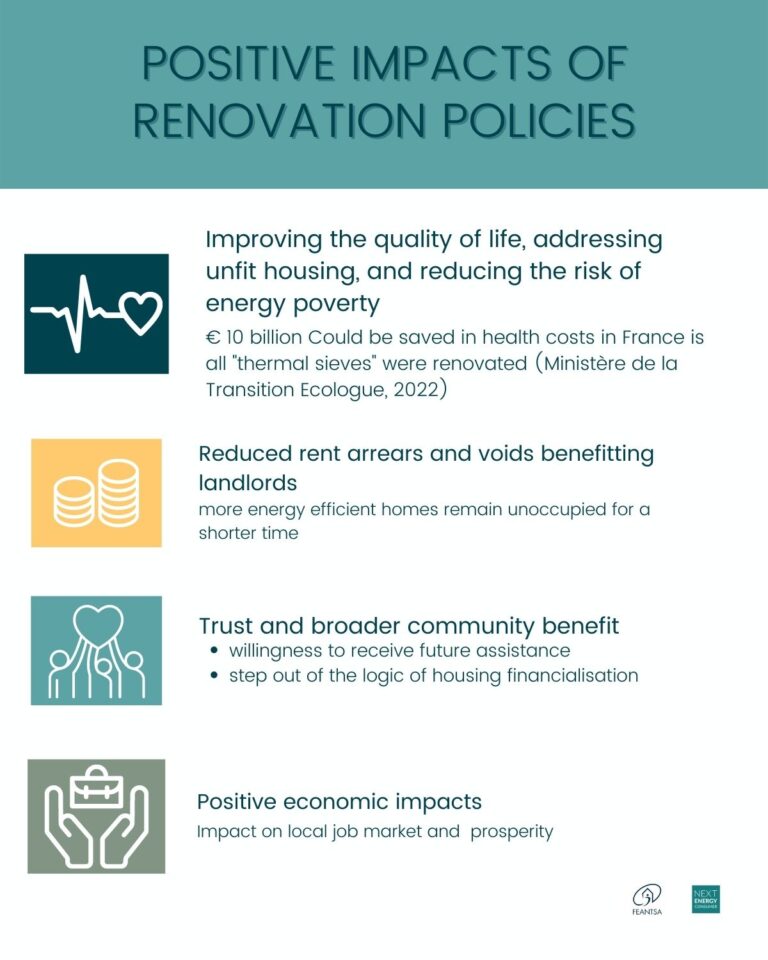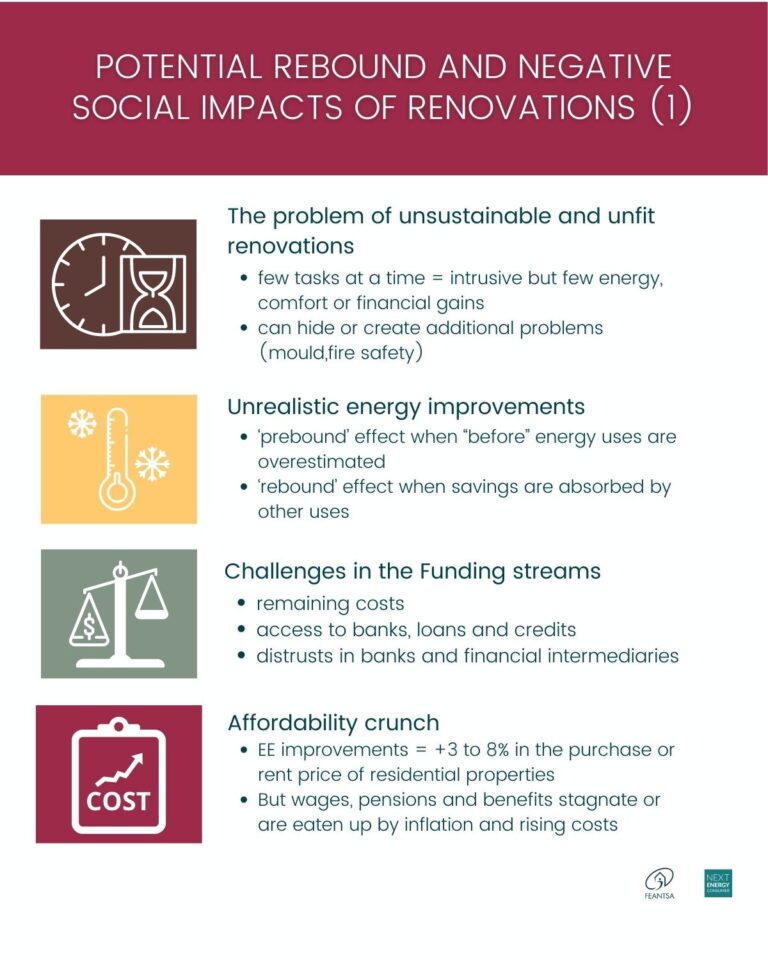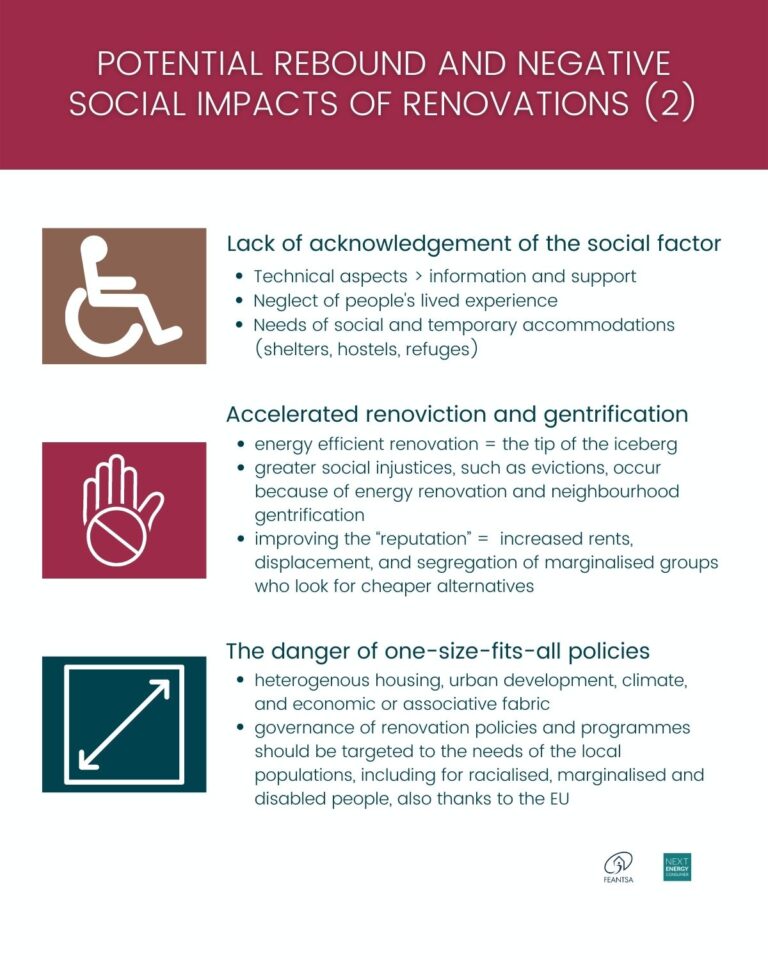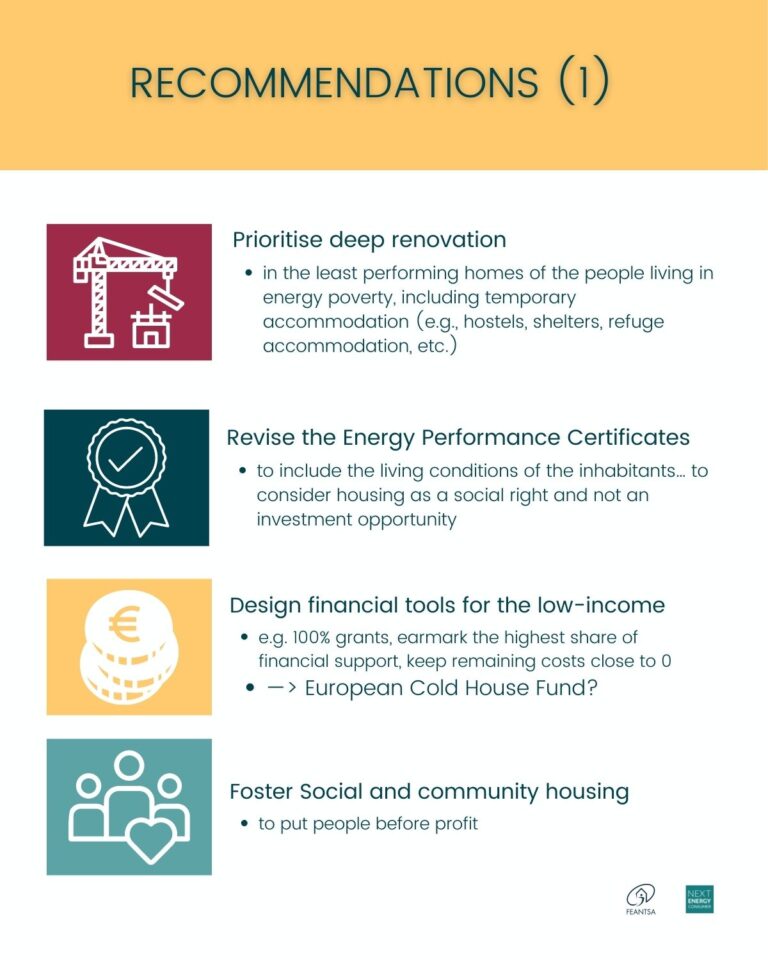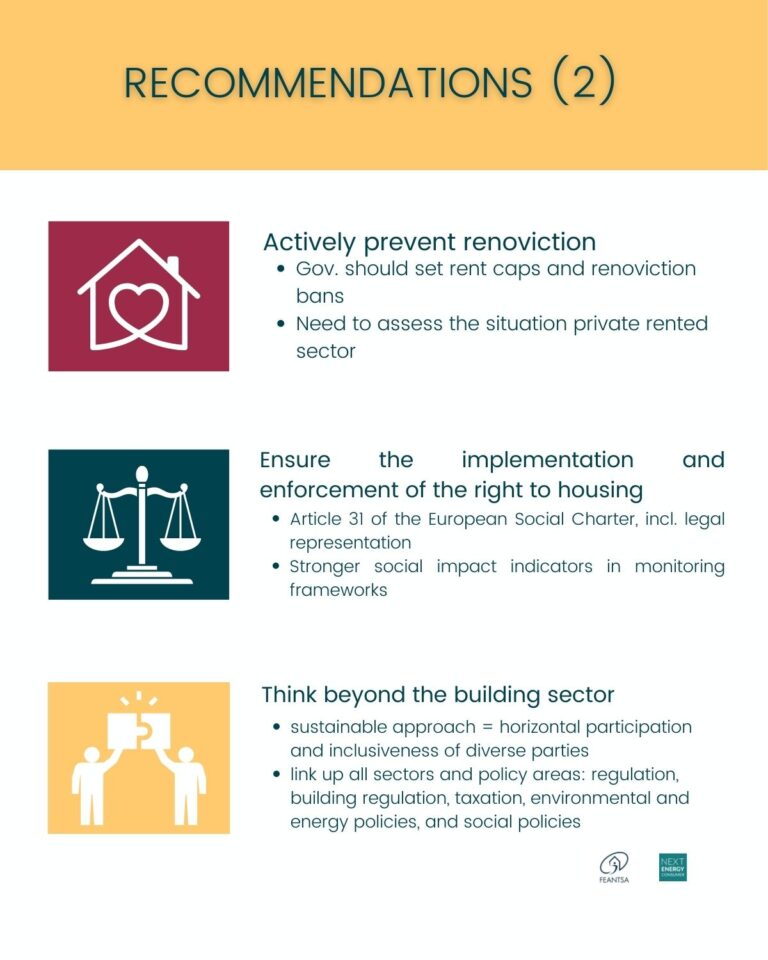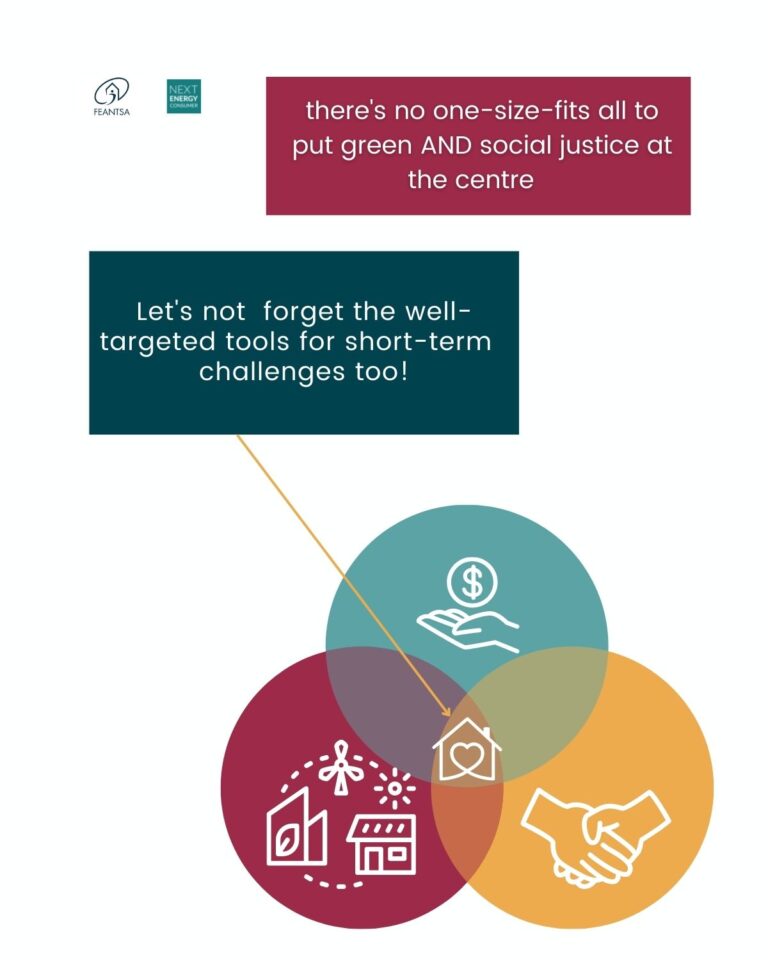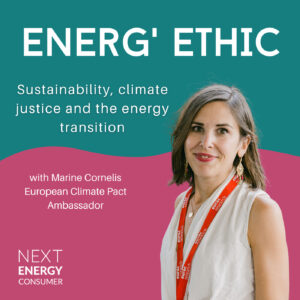Some retrofitting policies and programmes, far from increasing living standards and making more quality affordable housing available, lead to home eviction and push the most vulnerable households to the edges of society.
This phenomenon is known as ‘renoviction’.
On 6 December 2022, FEANTSA, the EU organisation working with the homeless, launched a series of reports sharing lessons from a year of research aiming to better understand the links between energy poverty and unfit housing.
FEANTSA’s experts focused on central, eastern and southern Europe, while Marine Cornelis gave an overview of the issues at stake at the EU level in the report “How to avoid a Renoviction Wave, Report on the social impacts of the Renovation Wave.
Indeed, many case studies demonstrate that without social safeguards, renovation policies can lead to gentrification and social exclusion (from rising rents and charges to eliminating certain accommodations…). And this is not only visible in Europe: the problem is particularly acute in California and in Canada too.
Besides, we are still missing evidence from Minimum Energy Performance Standards (MEPS).
As often when addressing energy poverty, the silver lining comes from the local level, where renovation happens on a case-by-case basis (such as Réseau Eco-Habitat in Northern France).
Hence, if our policymakers aim to be strict from a technical point of view, we must also be strict in terms of social requirements and safeguards.
In this report, we recommend to:
- 🏗 Prioritise deep renovation in the least performing homes of the people living in energy poverty, including temporary accommodation (e.g., hostels, shelters, refuge accommodation, etc.)
- 🪜 Revise the Energy Performance Certificates to include the living conditions of the inhabitants, to consider housing as a social right and not an investment opportunity
- 💶 Design financial tools for the low-income: e.g. 100% grants, earmarking the highest share of financial support, keeping remaining costs close to 0; or even by creating a European Cold House Fund
- 🏡 Actively prevent renoviction through rent caps and renoviction bans, and invest in understanding better the situation in the private rented sector
- ⚖️ Ensure the implementation and enforcement of the right to housing, presented in Article 31 of the European Social Charter, incl. legal representation; and include more social impact indicators
- 🫶 Foster social and community housing to put people before profit (yes, it’s possible: see in Vienna)
- 🧩 Think beyond the building because a sustainable approach supposes horizontal participation and inclusiveness of diverse parties. It also links up all sectors and policy areas, from regulation, building regulation, taxation, environmental and energy policies, and social policies
✅ This is key to putting green and social justice at the centre.
Find here the webinar and presentations of the various reports.

